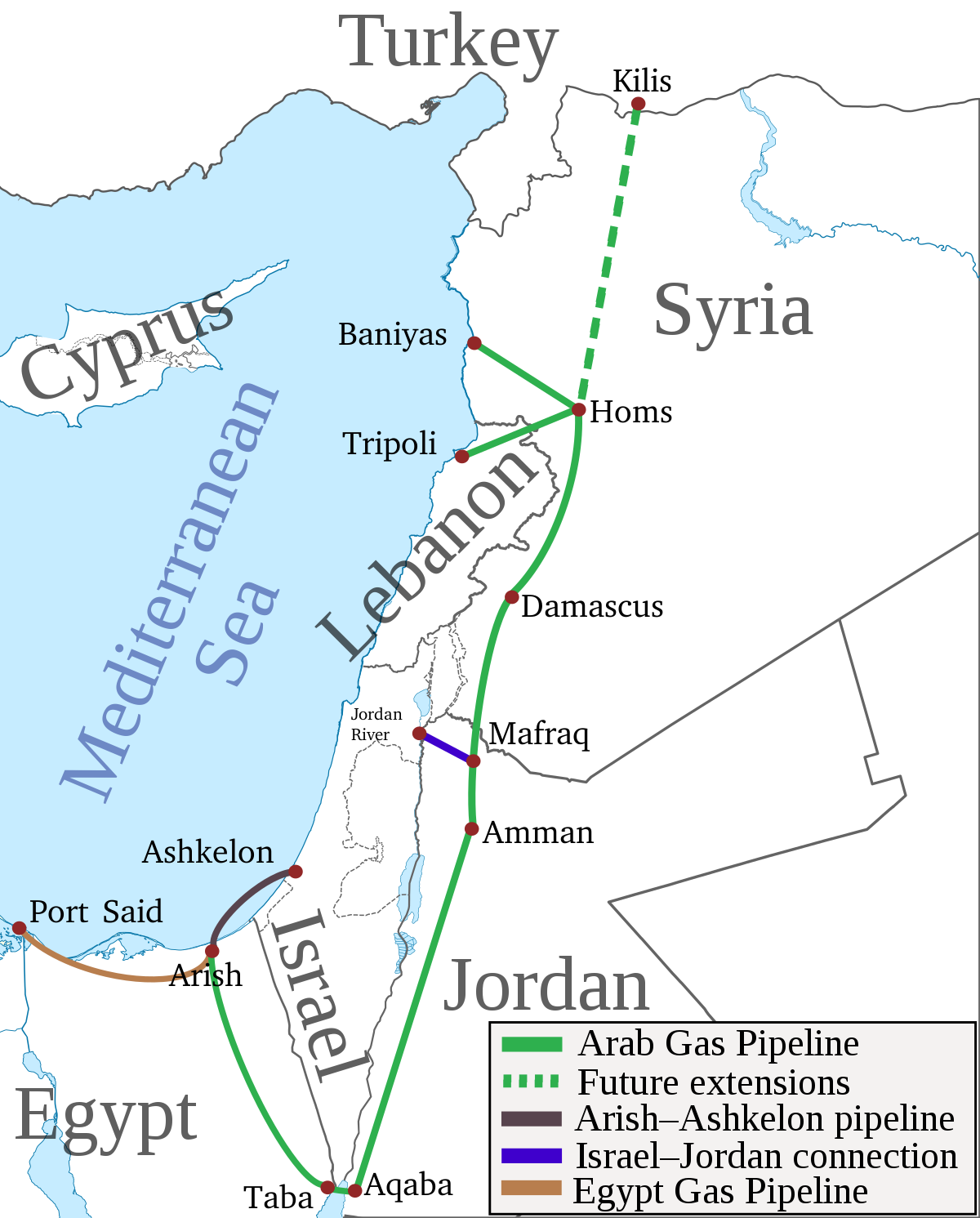CAIRO – 8 September 2021: Egypt’s Minister of Petroleum Tarek El Molla voiced hope that the country can soon export gas to Jordan to help supply Lebanon with electricity, saying Egypt will allocate all capabilities to help end the Lebanese energy crisis and work to quickly send natural gas to Lebanon.
Molla’s remarks were made during a meeting in the Jordanian capital of Amman with the Lebanese, Syrian and Jordanian energy ministers, Reuters reported.
The meeting addresses a US-backed plan to facilitate the exportation of Egyptian gas to Jordan so as to generate electricity and transmit it to Lebanon via Syria.
Extending support to Lebanon
During the meeting, Molla affirmed that Egypt would allocate all capabilities to extend support to the Lebanese people and help end the energy crisis in Lebanon, a statement by the Egyptian Petroleum Ministry read.
Egypt is working to quickly coordinate the arrival of its natural gas to Lebanon based on its keenness to contribute to supporting Lebanon and its stability, Molla said.
Molla affirmed Egypt’s keenness to fulfill cooperation in this field due to the great importance of Egyptian natural gas in supporting Lebanon and meeting the needs of the Lebanese people.
The minister affirmed that this cooperation stems from Egypt’s supportive role toward the Arab brothers in all issues and comes as per the directives of President Abdel Fattah El-Sisi.
Extending thanks to Egypt
Lebanon's Energy Minister Raymond Ghajar, for his part, thanked Egypt, Jordan, and Syria for the initiative they took to revive the quadripartite agreement on bringing Egyptian gas to Lebanon.
Ghajar affirmed that this cooperation would only take place thanks to the cooperation of the four countries in conjunction with the World Bank during this hard times Lebanon has witnessed.
Ghajar said the World Bank will secure a financial umbrella so that Lebanon can sign this agreement, especially as the technical teams that were formed in this quadripartite meeting will study the agreement, including all its technical, administrative and financial aspects.
This cooperation will lead, in the future, to reviving another agreement, which is to bring electrical energy from Jordan, whose price may be low compared to the prices of power generation in Lebanon, Ghajar said.
He affirmed that Lebanon, the government and the people, thanks the concerned brotherly countries for this initiative.
We hope that the work team will complete the necessary plan and the specified timetable with the required speed so that we can benefit from the Egyptian gas to feed the Deir Ammar plant, which has a capacity of about 450 megawatts, and which provides more than 4 hours of electricity supply to the Lebanese citizens.
Technical teams formation
During the meeting, Jordanian Energy Minister Hala Zawati said cooperation among the Arab Gas Pipeline countries will be an effective step to support the strategic projects and enhance joint interests.
Technical meetings have been held on the sidelines of the ministerial meeting to assess the preparedness of the infrastructure required to transfer natural gas in all of the four countries, Zawati said.
The meetings also aimed to present a clear work plan and timeframe to deliver the Egyptian gas to Lebanon, Zawati said.
Arab Gas Pipeline, cooperation
For his part, Syrian Oil Minister Bassam Tomeh affirmed that the Arab Gas Pipeline is one of the most important projects of joint Arab cooperation since 2003.
Syria, Lebanon, Egypt and Jordan are the main countries in the Memorandum of Understanding signed in 2000 and joined by Jordan a year later, Tomeh added.
The 1,200 kilometer-long Arab Gas Pipeline originates near Arish in the Sinai Peninsula and was build on three stages; the first phase extends to Aqaba with a length of 256 kilometers and a capacity of 10 billion cubic meters per year.
Egypt has started sending natural gas to Jordan through the pipeline as per this phase since 2003.

In August, the Lebanese Presidency revealed that Cairo will send Egyptian natural gas to Jordan so that it can produce extra quantities of electricity and add them to the grid linking Jordan with Lebanon via Syria.
According to a Lebanese presidential statement, United States to Lebanon Dorothy Shea informed Lebanese President Michel Aoun that her country will continue to support Lebanon to import electricity from Jordan through Syria.
Therefore, the transference of Egyptian gas through Jordan and Syria to reach northern Lebanon will be facilitated, the Presidency added.
Shea said the US side is exerting much effort to finish the relevant procedures.
She affirmed that negotiations with the World Bank are underway to secure the funding required to purchase the Egyptian gas, fix and strengthen the electricity transportation lines and conduct the maintenance work required for the gas pipes.
King Abdullah II of Jordan affirmed that his country will work with partners and friends to support Lebanon, Jordan’s news agency cited Jordanian Energy Minister Hala Zawati as saying last month.
Supporting Lebanon and the Lebanese people have been on top of the topics the Jordanian king has addressed during his latest visit to the United States, Zawati said.
She affirmed Jordan’s keenness to provide all possible support to the Lebanese side and supplying Lebanon with electricity energy through the Jordanian electricity grid.
A day after his resignation as Lebanon’s prime minister-designate in July, Saad Al-Hariri revealed his country’s plans to import Egyptian gas through Syria, saying he discussed the issue during his visit to Cairo.
Hariri said his country would save 50-60 percent of the cost if it uses the Egyptian gas in its stations.
Comments
Leave a Comment